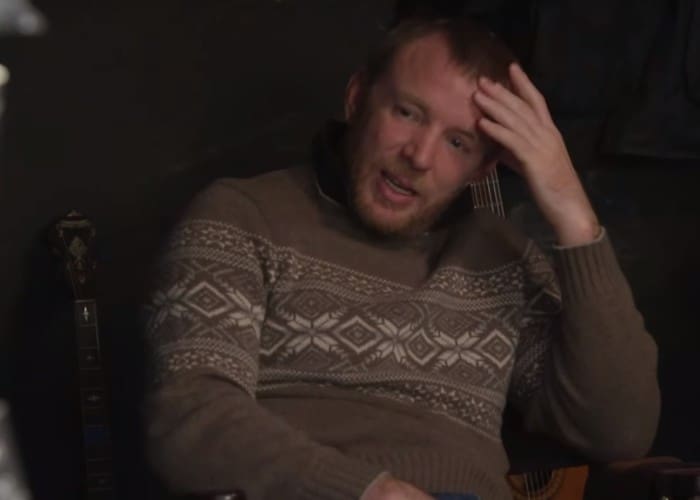
In the beginning, Guy Ritchie was the English answer to Quentin Tarantino. His first two features, Lock, Stock, and Two Smoking Barrels and Snatch, blend absurdist crime narratives with stylish neo-noir, making him one of the more influential commercial filmmakers of the last decade. His work since then has been, to put it kindly, something of a mixed bag. While several of the titles in his filmography have performed well at the box office, Ritchie’s reputation as a director has become entirely consumed by his period trappings and slow-motion aesthetic.
Put another way, Ritchie is one of those filmmakers whose work has not necessarily improved with bigger budgets. In looking over his body of non-work — the projects he was attached to or almost directed in the last decade — it’s easy to find a handful of titles that seem better-suited to Ritchie than the projects he ultimately accepted. Here are four movies that might’ve been great and then one near-miss trainwreck of biblical proportions.
The Dirty Dozen (2007)
In 2007, Hollywood was sweating bullets. With an ongoing WGA strike already disrupting schedules, and an impending SAG strike potentially on the way, studios were rushing to push as many projects into production as they could for fear of massive delays. This is how word got out that Ritchie had been tasked with bringing an adaptation of The Dirty Dozen to the big screen. Remake a classic, you say? Not so fast! As noted by a then-popular entertainment site that does not deserve our traffic, this version of The Dirty Dozen was set in modern times and featured a wealthy supermarket tycoon hiring a group of criminals to rescue his daughter from an al-Qaeda-esque terrorist group. I know this article is supposed to focus on the best projects that didn’t get made, but part of me is genuinely bummed we did not receive that trash fire of a film – which sounds poorly conceived and executed on just about every level — so on the list it goes.
Lobo (2009)
While the first Iron Man film impressed critics and audiences alike in 2008 — and a well-placed stinger at the end of The Incredible Hulk gave us our first hint that Marvel had something big in store for its characters — the idea that one superhero film had to be delicately connected to every other superhero film had not quite taken hold. In this context, the announcement that Warner Bros. had locked Ritchie to make a movie about Lobo kinda-sorta makes sense. Why not take a secondary character in the DC universe and give him to a name director with an established track record? These were the days before cinematic universes or house styles were commonplace; you could throw Ritchie into the mix and sort out the other DCEU movies later. Then again, Ritchie never seemed entirely as sold on the film as the trades would have you believe, so maybe his leaving the project was inevitable.
Treasure Island (2012)
If only the Hollywood trades also made a big fuss about directors detaching themselves from projects. When Guy Ritchie’s name was attached to an adaptation of Robert Louis Steven’s iconic book Treasure Island, most major entertainment sites — from IndieWire to MTV — ran articles weighing in on whether his eye for stylish action set pieces would be a good match for the film. Then, the movie just disappeared. Ritchie never seemed to leave the film officially, and it was never formally shelved by Warner, but rumors about the production ground to a halt almost immediately after the announcement. It’s likely that the disappointing box office of Pirates of the Caribbean: On Stranger Tides — the sequel grossed $241 million domestically on a budget of $250 million, even though it crossed the billion dollar mark internationally — soured the studio on a pirate-driven blockbuster. Only time will tell if this or Andrew Davis‘s long-gestating “modern retelling of Treasure Island“ will see the light of day first.
Empire Rising (2013)
If ever a project belonged in the hands of Guy Ritchie, it’s this one. Based on the 2006 novel of the same name, Empire Rising would follow an Irish-American gunrunner and a corrupt politician as they navigate 1930s New York during the construction of the Empire State Building. This is a narrative that plays to Ritchie’s strengths as a filmmaker but one that would also dabble in the world of literary fiction and, in the process, give him the closest thing to an arthouse picture we’ve had since his earliest days as a filmmaker. The good news is that Ritchie is still attached to the film on IMDb, making it possible that the director will yet dive into a high-brow historical crime thriller and age his work up a little bit. Then again, maybe this means we’d get the only version of an Empire State Building movie that has shirtless boxing.
The Man From U.N.C.L.E. 2 (2017)
While it’s become fashionable to dunk on the majority of Ritchie’s post-Snatch work, there is one film that even hardened cinephiles speak about in hushed tones. The Man From U.N.C.L.E. is all that is good with blockbuster filmmaking: a stylish ’60s spy thriller with four of Hollywood’s brightest young stars (Henry Cavill, Armie Hammer, Alicia Vikander, and Elizabeth Debicki) and a winningly low-key directorial effort from Ritchie. Fans of the film have never been particularly shy about their demand for a follow-up, which is why a small corner of the internet went absolutely berzerk when Hammer announced in 2017 that the original screenwriter was working on the script for a sequel. This passion came as a shock to Ritchie, who had “no fucking idea” that people enjoyed his adaptation. While some films on this list seem better suited to Ritchie’s skills as a director than others, this is the movie most people would want him to direct.
Related Topics: Guy Ritchie, Lobo, Never Made

